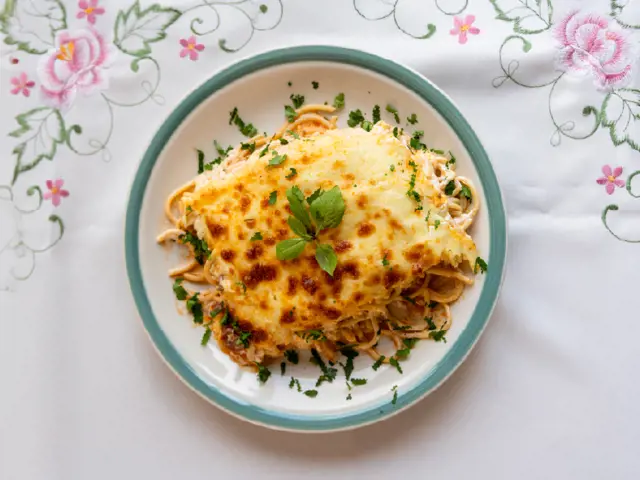


Most kinds of mushroom found in a supermarket will go well with pasta. Portobello and cremini mushrooms are actually the same kind of mushroom at different stages of development. Both are easy to find and go great with pasta. Foraged chanterelles and porcini mushrooms are real delicacies and also well suited for pasta. The key to amazing flavor is to fry your mushrooms in a dry pan until they release all their water. Keep frying until the water evaporates, then add butter or oil and seasoning, and fry until deep brown. To add a touch of luxury to your pasta, try adding a little truffle oil before serving.
Traditionally, freshly made pesto will be added to cooked, drained pasta and tossed together. The only time you will need to heat pesto before serving is when it comes straight from the freezer. Gently defrost the pesto at low heat in the microwave or in a pan on the hob. The sauce shouldn’t boil, as this will change its texture and flavor. You may need to add a little bit of water during the reheating process.
Pesto is a thick, roughly ground sauce, traditionally served with pasta. It hails from the city of Genoa in the north Italian region of Liguria, where it’s traditionally made with basil, pine nuts, and parmesan cheese. This green pesto is the famous pesto alla Genovese. Over the years, this delicacy has inspired a number of pesto sauces, made with a wide variety of ingredients. The default pesto is still Genovese, though.
In Italy, the birthplace of pesto, it’s traditionally served with freshly made trofie or spaghetti pasta. These are thin, delicate pasta shapes that capture the pesto and deliver its flavor without too much competition. High-quality dried pasta is easy to recognise by its pale color and rough surface from the bronze die that shaped the pasta. This surface roughness helps the pesto cling to the pasta. You can of course serve pesto with your favorite pasta shape, such as tagliatelle, penne, or even potato gnocchi.
If you have already mixed pesto and pasta, simply refrigerate the pasta in an air-tight container for up to five days. If you have leftover pesto, this can be refrigerated separately for up to five days. Make sure that the container is properly sealed and that there is enough oil in the pesto to cover the basil and other ingredients, preventing them from drying out. Pesto can also be frozen in a freezer-safe container for up to six months.

Discover Puck’s complete guide to Ramadan, with easy recipes for apps, main dishes, salads, soups and desserts. We also include simple tips for adding your own special touch, so you can focus on creating a joyous Ramadan experience for your whole family. Because you make Ramadan special.